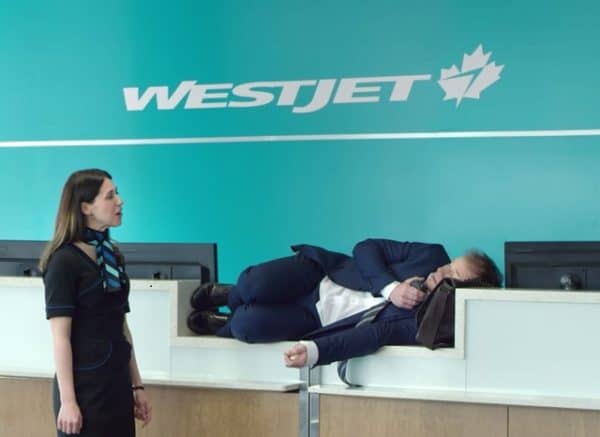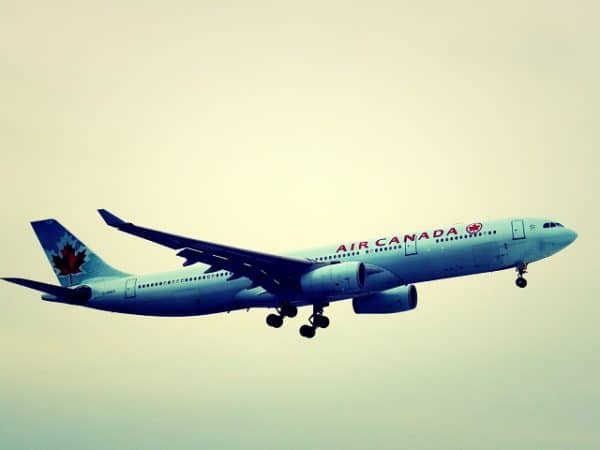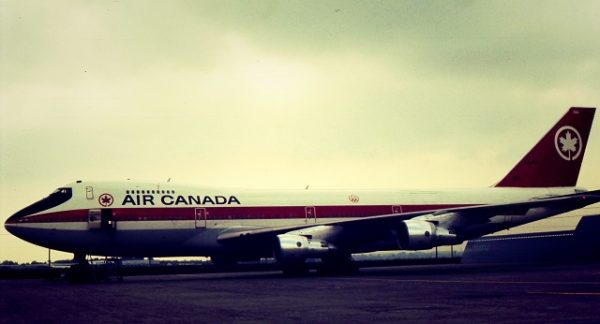

These days, Air Canada appears to be cruising.
The company has been in the black for four years running and was again named top North American airline, according to one particular survey (more on that later).
But recent statements by CEO Calin Rovinescu in defence of the much-hated practice of overbooking combined with growing customer dissatisfaction with the airlines in general suggest that the company may be out of touch with the times.
Will it be long before Air Canada takes another series of missteps and plunges back into financial calamity?
First a rhetorical question: is there any business practice currently more condemned than passenger overbooking on airplanes? Recent shame-inducing exposés have been all over the headlines, topped by an incident earlier this year when a United Airlines passenger was physically dragged kicking and screaming off a plane in Chicago when he refused to give up the seat he had already paid for.
Lawmakers both in the United States and Canada are calling for new rules to cut out the practice, which sees airlines using historical data on passenger no-show rates in booking their flights. For many companies, that strategy has paid off handsomely in recent years. In 2005, for example, planes taking off in the US were on average 75 per cent full, whereas now they’re at 80 per cent.
In Canada, a new passenger bill of rights has been tabled, one which makes a point of nixing the idea of bumping passengers against their will. Transportation Minister Marc Garneau said last month that the new rules, expected to be in place in 2018, are directly aimed at cutting out practices disrespectful of customers.
“We have all heard recent news reports of shoddy treatment of air passengers,” Garneau said at a news conference. “Such incidents will not be tolerated in Canada. When Canadians buy an airline ticket, they expect the airline to keep its part of the deal.”

But in a recent Globe and Mail interview, Air Canada CEO Calin Rovinescu was adamant that overbooking passengers should and will continue on his planes. Rovinescu leaned on the old saw that the company’s booking network is too big and complex, such that “by definition” some ticket-buyers will be no-shows. “Data shows there’s a certain number of no-shows that come up, so this practice has permitted pricing over the airline industry generally that would stay lower,” Rovinescu says.
Rovinescu and company are coming off recent congrats from the recent congrats from the annual Skytrax survey of almost 20 million air travellers which put Air Canada in 29th spot out of 100 airlines worldwide, far from glorious but enough to beat out the other major North American carriers (Delta finished 32nd, WestJet came in at 58th and American Airlines and United were 74th and 78th, respectively).
But the Skytrax results, which rely on customers volunteering to fill out surveys on the company’s website, are countered by recent other findings.
An Angus Reid poll earlier this month, while concluding overall that people think the airline industry in Canada and the US is, in general, “broken,” also put WestJet well ahead of Air Canada in terms of customer satisfaction.
“Among Canadian respondents, WestJet emerges as the clear preference,” reads the report. “Air Canada passengers are four times as likely as WestJet passengers to rate their experience of the airline as poor or terrible.”
The sentiment echoes another recent poll from market research firm J.D. Power, which had customers grade North American airlines on a range of elements from prices to check-in and boarding practices to in-flight service. Again, Air Canada showed poorly, ranking fifth out of five airlines in the survey.
But even if questionable service and a lack of attention paid to its customer’s concerns have become Air Canada’s calling card, is this necessarily going to hurt its bottom line? If history is to be the judge, then no.
In reality, the company’s past misfortunes had less to do with not meeting customer expectations and more to do with a host of other problems.

When Air Canada merged with Canadian Airlines back in the year 2000, it looked like the sky truly was the limit for the company, which had found itself virtually alone within Canada’s air travel sector. The forecast quickly turned gloomy, however, as the company filed for bankruptcy in 2003 as a result of taking on close to $13 billion in debt, in part coming from the Canadian Airlines merger itself. Along with that debt, the airline was hindered by an economic slowdown, the reluctance of passengers the world over to fly after the September 11th attacks in 2001 and new competition from discount carriers including WestJet, Jetsgo and CanJet. All of these brought about its dire condition in the early 2000s.
And, as the story goes, the airline emerged a year later under a new company (ACE Aviation Holdings) to begin its rebuilding process — only to again veer dangerously close to bankruptcy not just once but twice in 2009 and 2012. Again, the problem wasn’t customer dissatisfaction. Labour strife were involved, along with financial woes stemming from high fuel costs and way too high operating costs — all of which resulted in a lowering of Air Canada’s credit rating and the branding of the company as being perennially dysfunctional.
Yet, how times have changed. Four years of profit, a stock value which has shot up more than 800 per cent from 2012 and a big reduction in debt load now have Air Canada and Rovinescu verging on business darling status.
But, still, what about those pesky customers? In truth, Air Canada’s stranglehold on the Canadian market make it unlikely that grumblings from passengers are going to change the company’s fortunes —and may not even change the company’s policies, for that matter.
Cantech Letter spoke to Karl Moore of the University of McGill’s Faculty of Management. He blames a dearth of competition for the lack of impact that customer dissatisfaction is having not only on Air Canada but on the other airlines in North America, as well. “When you look at some of the major routes [in the US], there’s only one or two competitors whereas in the past there were three, which would’ve made you more responsive to customers and wanting to offer a bit more,” he says. As a result, Moore says, “flying is now less fun even though airlines are more profitable.”
Thus, there may be storm clouds up ahead for Air Canada (discount carriers pushing into Canada’s protected market, for instance), but for the moment, the future appears rosy, albeit in what in probably the most cyclical of all businesses.
And we can console ourselves with the knowledge that at least it’s not as bad as what they’re getting in the US.
“Compared to some of the Asian airlines, Air Canada’s service is not great, but judged against what the US carriers are offering, it looks pretty good,” says Moore.
Below: The National: Air Canada bankruptcy 2003
Leave a Reply
You must be logged in to post a comment.





 Share
Share Tweet
Tweet Share
Share




Comment